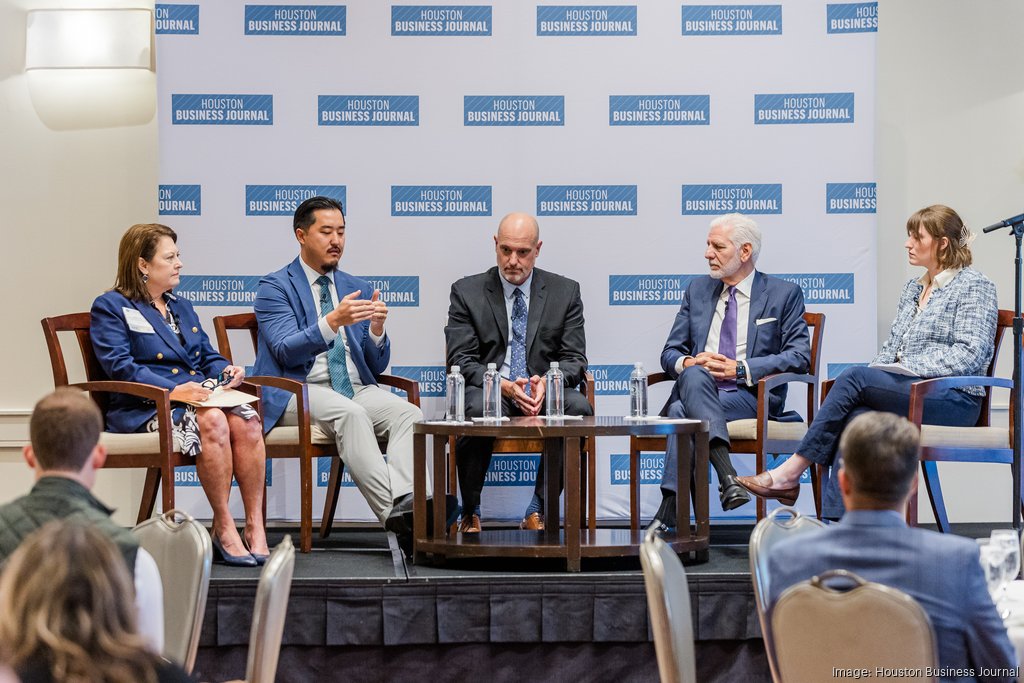[datacenter_tag_image]


At the Houston Business Journal’s Energy in Business panel on September 16, leaders from across the industry gathered to unpack how energy companies are navigating shifting tariffs, workforce pressures, and soaring demand from data centers. Among them, Joel Yu, senior vice president of policy and external affairs at Enchanted Rock, offered a clear-eyed perspective on the challenges ahead and the opportunities that will define Houston’s role as the world’s energy capital.
Seeing Beyond Short-Term Cycles
While others emphasized immediate market shifts, Yu encouraged the audience to think longer term. Drawing parallels to the dot-com era, he noted: “The data center growth, even if we’re in a bit of a boom here and have risk of a bust, it’s perhaps a temporary blip. The dot-com bust was painful for many, but in the end, the transformation of the internet drove a lot of progress for how we operate and do business.” For Enchanted Rock, the takeaway is clear: demand for reliable power will persist regardless of short-term fluctuations. As Yu put it, “We’re going to see a lot of growth, whatever happens in the short term. Even if there is some risk there, I think we’re bullish that demand growth will drive the need for infrastructure investment.”
Addressing Speed-to-Power and Supply Chain Gaps
Yu also spotlighted one of the defining challenges of today’s data center boom: the race to secure power quickly. “The big challenge we see with data centers driving supply chain constraint is their desire for speed to power. It’s a competitive space. But in that race to power, we’ve seen power generation assets of all types run into supply chain constraints.”
He pointed out that traditional diesel backup systems — long considered the standard for data centers — are no longer a simple answer. “The diesel backup that’s standard for data centers has gotten extremely expensive, and lead times are longer there. As folks have been turning to gas, gas turbine supply chains have been tight.” His message underscored the urgency for policy and infrastructure solutions that can meet the speed and scale of new demand: “On the gas side, we are very interested in seeing more policy support for fast tracking needed gas infrastructure. It seems like the demand is there and the companies are willing to build, but the timelines are the most challenging piece. It’s part technical, part economics, part policy.”
Turning Tariff Pressures into Opportunity
While tariffs and trade shifts have disrupted many industries, Yu reframed the issue as a potential opening for localized growth. “We’ve got our domestic manufacturing that helps mitigate some of that risk, but we’ve taken a different perspective on this. We’ve seen some upside for our business in terms of onshoring of manufacturing — Taiwanese chip manufacturers and server manufacturers building facilities in and around Texas and California.”
For Enchanted Rock, those new facilities present a natural fit for microgrid solutions: “Domestically, those are also opportunities for us to go build microgrids as they’re testing servers and taking up large loads on the grid.” His comments positioned onshoring not just as a resilience strategy, but as a growth driver for advanced, distributed energy infrastructure.
A Call for Policy Alignment
Threaded through Yu’s insights was a recurring theme: the need for aligned policy that matches the pace of technological and market change. Without it, bottlenecks will persist. With it, Houston and its energy leaders can capture the benefits of data center growth, AI-driven demand, and a reshaped global supply chain.
Yu’s perspective framed Enchanted Rock not just as a participant in the energy transition, but as a company shaping how critical industries access cleaner, more reliable power. His remarks carried a message of both caution and conviction: while timelines, tariffs, and supply chains remain unpredictable, the long-term trajectory is one of growth — and those prepared to adapt will lead the way.